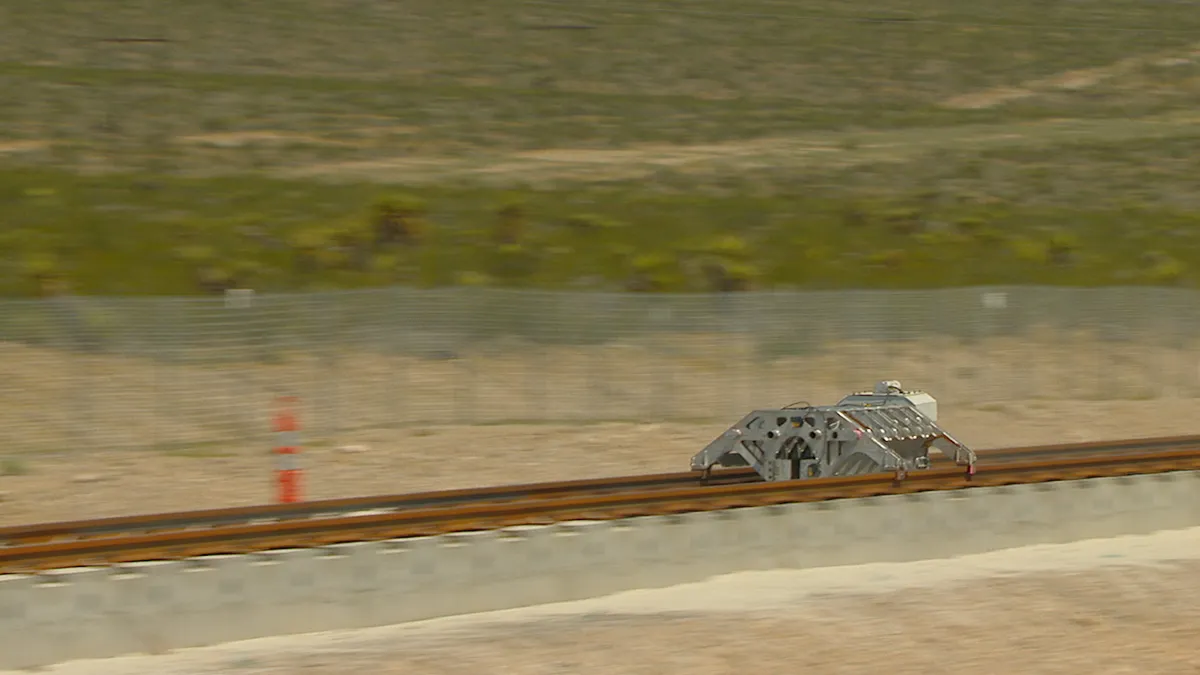Dive Brief:
-
Hyperloop One raised $85 million in Series B-1 funding, bringing total investment in the ultra-high speed rail company to $245 million and its valuation to more than $700 million, Recode reported.
-
The company plans to concentrate on commercializing and developing potential international routes, with feasibility studies in Dubai, the U.K., Russia and the U.S. already complete.
-
Despite investor support, the company still faces the challenge of acquiring land, according to TechCrunch. Hyperloop One also faces pressure from the possibility that Elon Musk, originator of the concept and owner of the hyperloop trademark, might be getting ready to build his own hyperloop.
Dive Insight:
Excitement began building around the new transit typology from the moment Musk dropped an open challenge in 2013 for a group to begin developing it. At the Hyperloop Pod Competition Design Weekend in February 2016, then–U.S. Transportation Secretary Anthony Foxx said the federal government should "lean in" to the technology, suggesting the Transportation Department would be open to funding research for the concept — although that has yet to happen.
The hyperloop concept appeared to have taken a step forward in July, when Musk said he won verbal federal approval from the Trump administration to build an underground route that would take passengers from New York City to Washington, DC, in 29 minutes. Still, no formal plans have been announced and area government heads, including New York City Mayor Bill de Blasio, said they had not been contacted as of Musk's initial announcement.
At the heart of the hyperloop discussion, and of Musk's new, aptly named tunnel-boring company, is the goal of reducing travel time and easing or altogether avoiding traffic congestion. In a February report, connected car services and research company Inrix found that the average American spent 42 hours a year in traffic congestion, with Los Angeles drivers spending the most time in jams, at 104 hours annually.
Infrastructure improvements aren't the only way states are working to improve traffic flow. Some cities and counties are looking at alternatives like congestion pricing. Lee County, FL, offers 50% off tolls to drivers using an electronic pass and traveling before and after rush hour. According to the Federal Highway Administration, the strategy has reduced rush-hour travel time on high-volume routes by up to 20%.
New York Gov. Andrew Cuomo has proposed a similar scheme to ease congestion in and out of Manhattan, but he will likely face pushback from New York City Mayor Bill de Blasio and Republicans in the state Senate.












